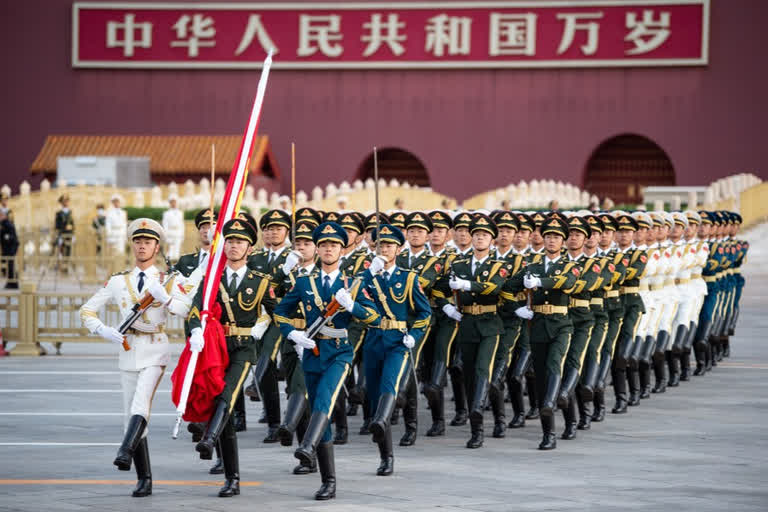New Delhi: Another evidence of rampant double-speak by major global powers on the militarization of space became obvious when the Chinese government went on the counter-offensive against last week’s accusations by the National Aeronautics and Space Administration (NASA) head.
Underlining the declared state policy, Zhao Lijian, the Chinese foreign ministry spokesperson, said during regular press briefing in Beijing on Monday: “China always advocates the peaceful use of outer space, opposes the weaponization of and arms race in outer space, and works actively toward building a community with a shared future for mankind in the space domain.”
Zhao was responding to a startling recent accusation by none other than the NASA head Bill Nelson, the first member of the US House of Representatives to have travelled to space who chaired the House Space Subcommittee for six years. Accusing Chinese astronauts of training to destroy satellites of other countries, Nelson had told German media during an interview last week: “We must be very concerned about China landing on the moon and saying that it now belongs to the People’s Republic and everyone else should stay out.”
The development took place even as three names are being nominated for the Chinese military’s highest honour to be conferred on August 1. The nominees include Nie Haisheng, a leading Chinese astronaut, who is also a major general in the PLA's Strategic Support Force (PLASSF).'
Also read: 27 missing after floating crane sank in China
The August 1 Medal is granted to that military personnel who have made outstanding contributions to safeguarding national sovereignty, security and development interests, and to advancing the modernization of national defence and the armed forces. In 2021, Hie, who has flown to space three times, spent a combined 111 days in space conducting numerous experiments many of which are ‘classified’.
On the other hand, the declared or ‘civilian’ mission objectives of Hie, who is also a former fighter pilot, included testing technologies related to long-term space stays, impact on human health, supply and logistics activity, and extravehicular operations, and in-orbit maintenance. The other two nominees are Du Fuguo, a PLA sapper, and Qian Qihu, a leading scientist.
Du has been instrumental in clearing about 150 tons of bombs, and 400 land mines and handling over 20 emergency situations before an accident in 2018 on the Chinese-Vietnam border severely wounded him. Qian is the man behind setting up an “impregnable” underground storage facility to protect and store the country’s nuclear weapons from attacks by adversaries.
Called the August 1 Medal and awarded by the all-powerful Central Military Commission (CMC), this time occasion will mark the 95th anniversary of the founding of the People’s Liberation Army (PLA). The Chinese President Xi Jinping, who is also the CMC chairman, will confer the medal.
Not just China, but the US is believed to have stepped up activity that leads to the militarization of space. The US has a separate unified command for space called the United States Space Command (USSPACECOM or SPACECOM) which is responsible for military operations in outer space, specifically all operations 100 km above mean sea level.
Manned by US military personnel, the space command was first set up in 1985 only to be demobilized. The second coming took place in 2019 with space being the prime area of focus as a battlefield.



